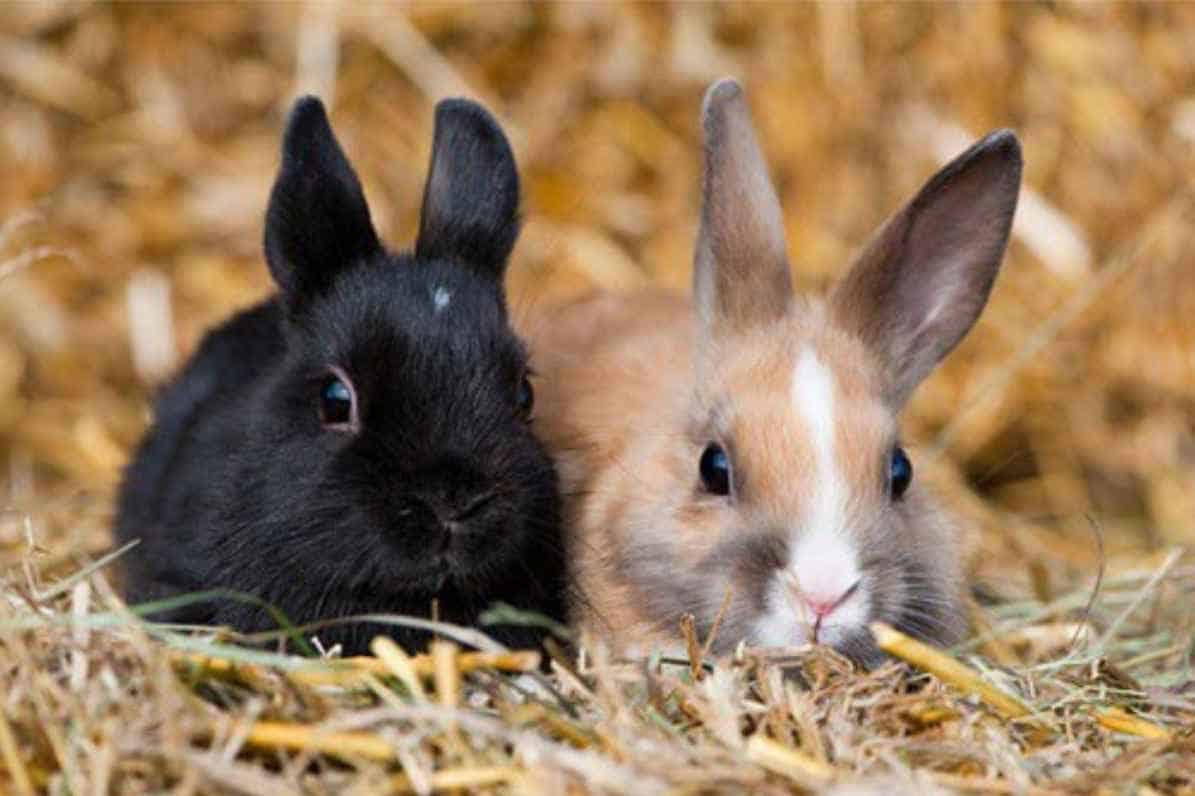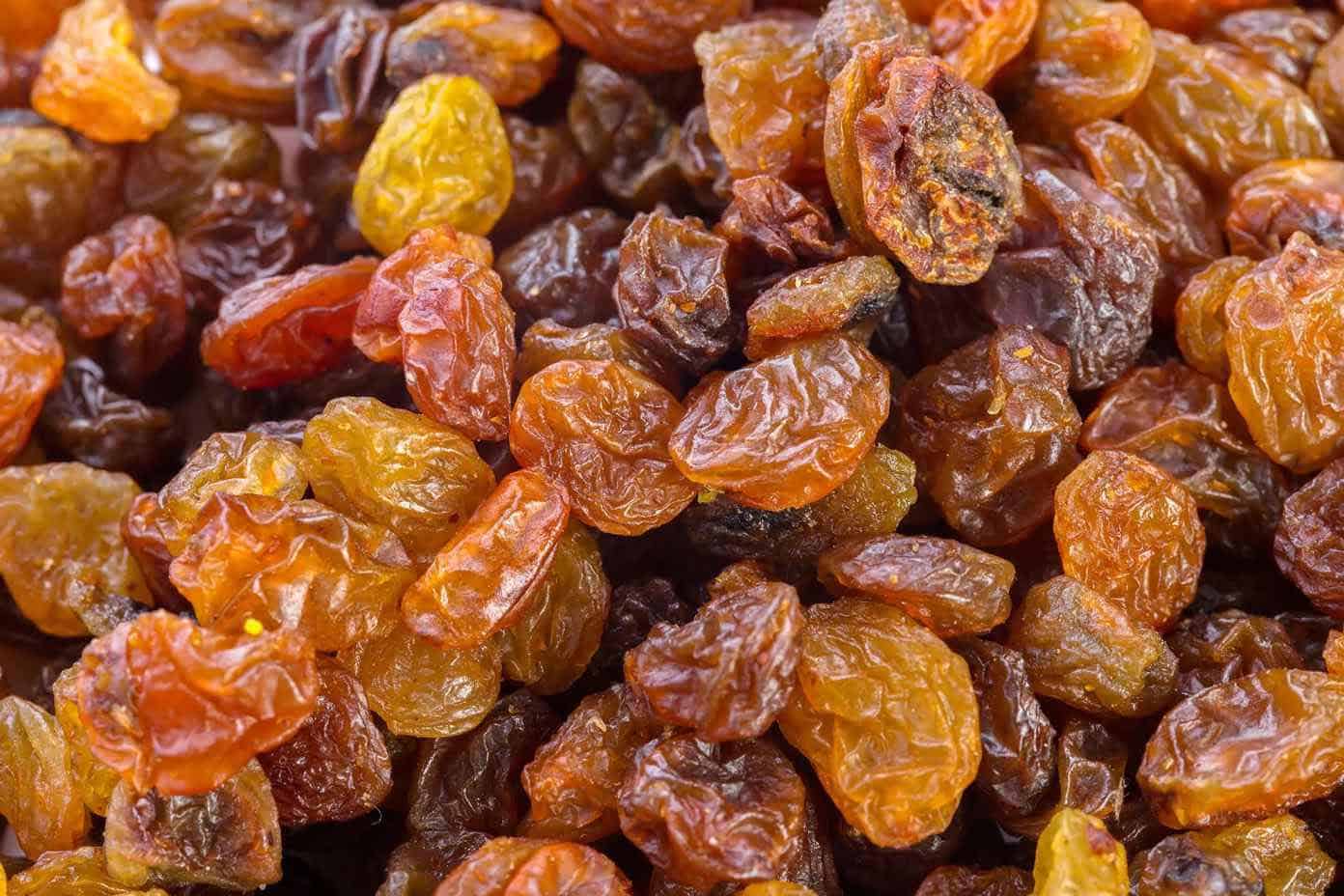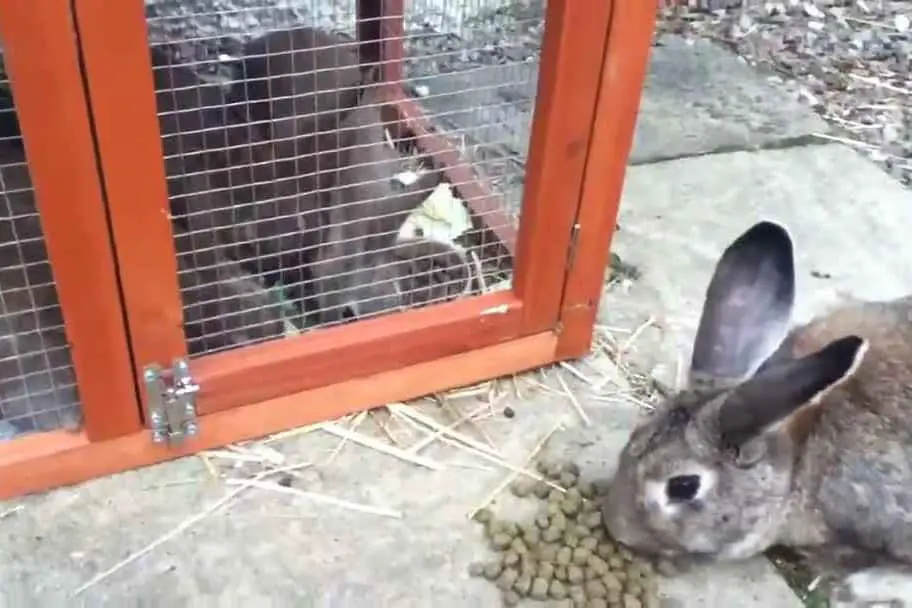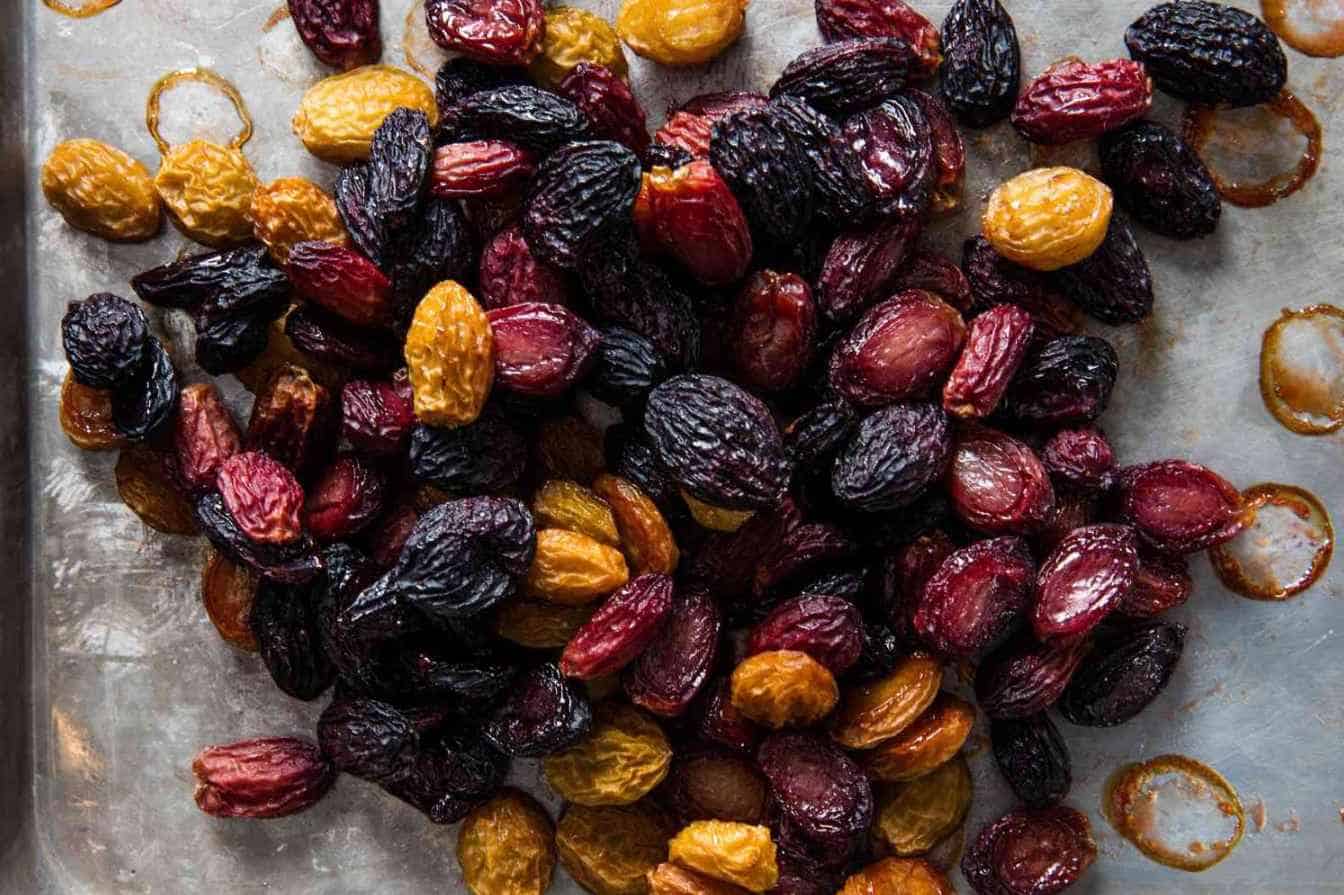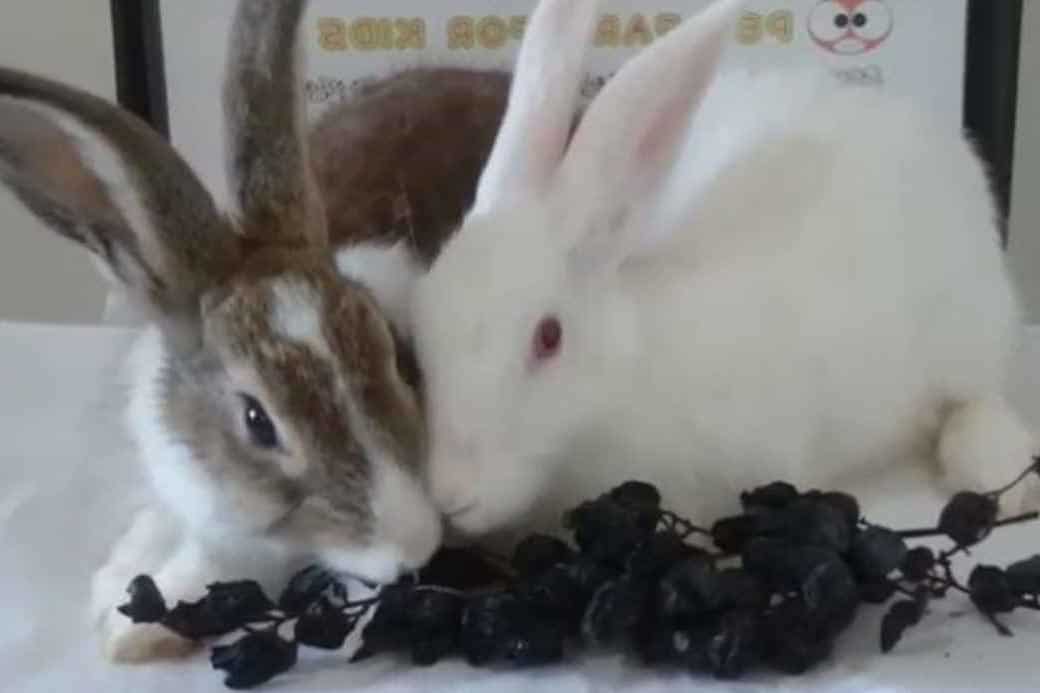Raisins, also called sultanas and currants, are dried grapes produced in many parts of the world. They can be eaten raw as a snack or used in baking and cooking.
Raisins usually look unappealing due to their appearance and texture but don’t let that fool you. They are full of essential nutrients which enhance sleep, digestion, and teeth health. Do you know that raisins are also good for your rabbits?
Are Raisins Good For Your Rabbit?
Yes, raisins are safe for your rabbit. Bunnies will eat anything sweet, which automatically includes raisins, as dried fruits have high sugar content compared to their fresh ones. Although raisins are a good treat for your rabbits, you have to be careful because of their high sugar content.
They should be served in moderation as overfeeding wreaks havoc in the digestive tract. Don’t give your rabbits raisins more than twice a week. If your bunny suffers from digestive problems, do not feed it with raisins. It will only compound the issue.
At What Age Can Rabbits Eat Raisins?
Baby bunnies below seven months should not eat raisins. Only adult rabbits should be fed with raisins. Baby rabbits have weak digestive systems while still developing, making them susceptible to harm if fed with anything except high-quality hay and pellets.
If your bunny suffers from digestive problems, do not feed it with raisins. It will only compound the issue. Rabbits who are seven months old and above can eat raisins. But, it must be done moderately. Feeding your rabbits raisins should be based on their age and size. As such, baby bunnies are better off without treats.
How Many Raisins Can Your Rabbits Eat?
The next thing to consider is the number of raisins your rabbits can eat, which usually depends on your bunny’s weight, breed, and age. Only adult rabbits should eat raisins. Also, two whole raisins twice a week is enough for your bunny.
Smaller bunnies must eat fewer raisins compared to bigger bunnies. Finally, how your rabbits react when they eat raisins is important. If their reactions call for alarm, stop feeding them raisins.
What Do Your Rabbits Gain By Eating Raisins?
Eating raisins has health benefits for both humans and bunnies. No matter how little the raisin you give your bunny is, it is still nutritious. Below is a table from the United States Department of Agriculture that shows how healthy 100g of raisins can be.
| Nutrient | Value |
| Water (g) | 15.5 |
| Energy (kcal) | 299 |
| Energy (kJ) | 1250 |
| Protein (g) | 3.3 |
| Total lipid (fat) (g) | 0.25 |
| Carbohydrate, by difference (g) | 79.3 |
| Fiber, total dietary (g) | 4.5 |
| Sugars, total including NLEA (g) | 65.2 |
| Glucose (g) | 30.5 |
| Fructose (g) | 34.7 |
| Calcium (mg) | 62 |
| Iron (mg) | 1.79 |
| Magnesium (mg) | 36 |
| Phosphorus (mg) | 98 |
| Potassium (mg) | 744 |
| Sodium (mg) | 26 |
| Zinc (mg) | 0.36 |
| Copper (mg) | 0.272 |
| Manganese (mg) | 0.281 |
| Selenium (µg) | 0.6 |
| Fluoride (µg) | 234 |
| VitaminC, total ascorbic acid (mg) | 2.3 |
| Thiamin (mg) | 0.106 |
| Riboflavin (mg) | 0.125 |
| Niacin (mg) | 0.766 |
| Vitamin B-6 (mg) | 0.174 |
| Folate, total (µg) | 5 |
| Folate, food (µg) | 5 |
| Folate, DFE (µg) | 5 |
| Choline (mg) | 11.1 |
| Vitamin E (alpha-tocopherol) (mg) | 0.12 |
| Vitamin K (phylloquinone) (µg) | 3.5 |
| Fatty acids, total saturated (g) | 0.094 |
| Fatty acids, total monounsaturated (g) | 0.024 |
| Fatty acids, total polyunsaturated (g) | 0.053 |
| Fatty acids, total trans (g) | 0.001 |
| Fatty acids, total trans-monoenoic (g) | 0.001 |
- Antioxidants: Raisins have a high level of antioxidants, which help rabbits grow healthily and prevent cell damage. They also support anti-inflammatory mediators in your bunnies’ bodies.
- Potassium: Raisins are a great source of potassium which helps reduce the risk of high blood pressure and heart-related issues.
- Soluble fiber: The soluble fiber in raisins aids digestion and reduces stomach-related issues. Raisins have tartaric acid that balances the bacteria in the stomach.
- Vitamins: Raisins have many vitamins like C, and K. Vitamin C is an antioxidant that enhances skin and bone health.
- Relieve constipation: Raisins relieve constipation and indigestion and prevent anemia.
- Fat-free: you don’t have to worry about your rabbits getting unnecessarily fat when they eat raisins. Raisins are fat-free and cholesterol-free.
- Dental care: raisins have compounds that improve dental health and prevent dental issues.
8 Tips For Feeding Your Rabbits Raisins
To be safe, below are helpful tips to follow when giving your rabbits raisins.
- Raisins are dried grapes likely sprayed with pesticides and chemicals from the farm. More chemicals are added for preservation during packaging. These chemicals are quite harmful to your bunny, so you need to wash the raisins under running water before giving your rabbits. Wash them properly with running water.
- Cut the raisins into small pieces before giving your rabbit. This will allow you to see any unwanted thing in it.
- Don’t feed your bunny raisins with seeds in them.
- Only feed your bunny with two raisins twice a week.
- Don’t give baby rabbits raisins.
- Check for brands that have no added sugar when shopping for raisins. Raisins are already sweet; added sugar might lead to complications. Otherwise, buy from organic brands. It’s safer but more expensive.
- Buy a small pack if you don’t plan to use the raisins at once. Buying a big pack might tempt you to give your bunny more raisins than necessary.
- When introducing raisins to your rabbit, start with a little quantity and observe closely for reactions. If there are unfavorable responses, stop.
How To Make Raisins At Home For Your Rabbits
Since grapes are usually sprayed with chemicals and pesticides on the farm, it is safer to make your raisins. Although organically-made raisins are healthier, they are expensive. To avoid spending too much on raisins, you can choose to make them in your home.
Here are the things you need to make them;
- Fresh seedless grapes
- A cover for the grapes (to ward away pests)
- Sunlight
- Tray or any flat platform.
Below are steps for making raisins;
- Wash the grapes thoroughly
- Gently dry them (a clean towel might be useful)
- Spread the grapes on the flat platform. Do not allow the grapes to touch one another.
- Ensure the grapes are well-ventilated.
- Cover the grapes (table cover or baking paper should be useful) if you are drying them outdoors. Make sure what you use to cover the grapes won’t fly away. If necessary, place something on it to weigh it down.
- The grapes should stay for at least 3 days under direct sunlight. If you can get direct access to the sun indoors, there’s no need to cover the grapes.
- If any grape becomes damp or rotten, remove them from the remaining.
- The heat the grapes get from the sun will cause them to dry and shrink.
What Happens When You Give Your Rabbits Too Many Raisins?
You are endangering your rabbits when you overfeed them with raisins. Below are the possible effects:
- Too many raisins can cause diarrhea due to their high sugar content.
- The digestive system of bunnies can’t operate properly when they have too much sugar. This will lead to indigestion.
- Excess consumption of raisins also leads to long-term health problems like obesity.
- As much as antioxidants in raisins are important, too many of them will harm the rabbit’s body system.
- Digestive issues may arise due to its high fiber content, which is dangerous for your rabbit’s stomach – stomach cramps, bloating, and gastrointestinal stasis.
- Too much sugar might lead to difficulty in breathing.
- Your bunny might get addicted to the sweetness and turn its nose to the main diet.
5 Other Dried Fruits Rabbits Can Eat
Asides raisins, there are other dried fruits that you can give your rabbits as treats.
- Cashews: are enriched with nutrients such as copper, potassium, selenium, phosphorus, magnesium, protein, and fats. They are sweet and crunchy and help control blood sugar and aid healthy weight loss and heart health.
- Prunes: Antioxidants like polyphenol and anthocyanins are present in prunes and dried plums. Fiber, potassium, copper, manganese, and vitamins A, C, and K are some nutrients your bunny will get from eating prunes. Prunes are nutritious and sweet but don’t give them to your rabbits without removing the pits.
- Figs: Figs are succulent and sweet, exciting your bunny’s palate. Figs are full of fiber but should be eaten in moderation. With figs as treats, your bunny will enjoy different antioxidants, fiber, magnesium, zinc, potassium, calcium, manganese, and Vitamins A, B, and K.
- Apricots: Apricots are goodness overload—Vitamin A, C, iron, fiber, calcium, copper, and potassium. They also have phytonutrients that enhance skin health. Bunnies can eat the skin, but the pits must be removed. You can only give to bunnies over 12 weeks at a very minimal amount.
- Peaches: have some traces of vitamins, minerals, and micronutrients such as selenium, antioxidants, and Vitamin C. They are low in calories and lessen the risk of inflammation. Also, they contain compounds that improve eye and skin health.
Summary
As nutritious as raisins are, they are treats and shouldn’t be substituted for the main diet. Relying on sugary treats like raisins to meet your rabbit’s nutritional requirements is not advised.
Raisins should be rationed appropriately and moderately. Avoid yogurt-covered raisins as the rabbit’s digestive systems aren’t designed for too many fats and proteins.
